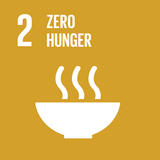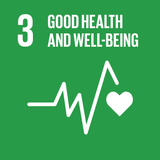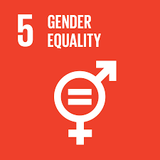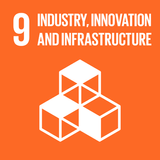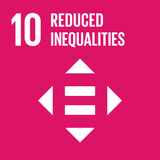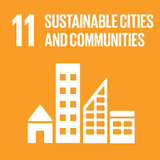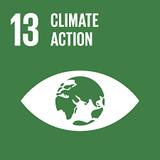

Shariah-compliant Funding
Kingdom Investment Corporation Limited (KICL) embraces the principles of Shariah-compliant funding as the cornerstone of its investment approach and due diligence process. With a strong commitment to ethical and transparent practices, KICL diligently adheres to the key principles that govern Shariah-compliant funding, such as the prohibition of interest (riba) and the avoidance of uncertainty (gharar). By upholding these principles, KICL ensures that its financial activities align with the teachings of Islam and promote fairness, justice, and social responsibility. In line with these principles, KICL employs commonly practiced Shariah-compliant funding methods, including musharakah (profit-sharing partnership), mudarabah (profit-sharing investment), murabaha (cost-plus financing), and ijara (leasing arrangements). These methods not only enable KICL to meet the financial needs of its clients but also contribute to the overall ethical and sustainable growth of the business and the communities it serves.
1
Mudharabah
Profit and loss sharing
6
Musharakah
Joint Venture
11
Murabahah
Cost plus finance
2
Musawama
Not disclosing price paid
7
Ljarah
Leasing
12
Salam
Deferring payment
3
Istisna
Production future contract
8
Wadiah
Safekeeping
13
Hawala
International fund transfer
4
Takaful
Islamic insurance
9
Sukuk
Islamic bonds
14
Waqf
Endowments
5
Zakat
Mandatory almsgiving
10
Sadakah
Charitable giving
.
.
Heading 6
Alignment with the UN 17 SDGs
Kingdom Investment Corpora=on Limited follows the guidelines and principles of the United Nations Sustainable Development Goals (SDGs) and strives to address all 17 SDGs through our portfolio. In line with this commitment, we are actively developing our own impact metrics and impact strategies to ensure that our investments generate meaningful and measurable outcomes.

Horn of Africa
The Horn of Africa has a rich history that spans thousands of years, characterized by diverse cultures and kingdoms, as well as colonialism and internal conflicts. The region's ancient kingdoms include Axum and Punt, while the more recent history has been shaped by colonial powers such as Italy, France, and Great Britain. This history has created deep-seated social, economic, and political divisions that continue to affect the region today. Despite these challenges, the Horn of Africa remains a region of great potential, with a rich cultural heritage and abundant natural resources that can be leveraged for sustainable development and prosperity. The Horn of Africa is a region rich in natural resources, including oil, natural gas, minerals, and fertile land for agriculture. However, despite this wealth of resources, the region has one of the lowest economic growth rates in the world, with high levels of poverty, unemployment, and underdevelopment.
According to the World Bank, the GDP per capita in the Horn of Africa is only $645, compared to the global average of $11,570. In addition, the region has a high dependency on aid, with foreign assistance accounting for over 10% of the GDP in some countries. To address these challenges, KICL is working closely with government authorities and local stakeholders to create public-private partnerships that promote sustainable economic development in the region. By leveraging its strategic location as the gateway to the Red Sea, KICL aims to position the Horn of Africa as a major center of global trade and trade finance.
Trade in the region has the potential to create significant economic benefits. For example, the African Continental Free Trade Area (AfCFTA), which came into effect in January 2021, aims to create a single market for goods and services in Africa, with the potential to boost intra-African trade by 33%. In addition, the United Nations Economic Commission for Africa (UNECA) estimates that the AfCFTA has the potential to increase intra-African trade by $35 billion per year.
KICL's approach to regional success is based on building links between different communities and stakeholders, with a focus on mutual benefit. By co-developing sustainable investment strategies that strengthen institutions and build trust, KICL aims to create pathways for inclusive prosperity that benefit all stakeholders. Through these efforts, KICL seeks to invest in peace, security, and prosperity by rebuilding communities and nations from the bottom-up.


Continental Africa
Over the last two decades, Africa has seen significant foreign investment in its infrastructure and development projects. In particular, the Belt and Road Initiative (BRI) spearheaded by China has played a prominent role in financing these endeavours. Estimates indicate that Chinese investment in Africa’s infrastructure exceeded $100 billion between 2010 and 2020, funding projects such as the construction of ports, railways, and roads, while also making other investments in sectors including energy, telecommunications, and more.
In addition to investment from China, Africa has also attracted significant foreign direct investment from other countries, particularly in the energy and extractives sectors. Among them, the United States, France, and the United Kingdom are some of the countries that have made substantial investments, contributing to the development of the above two sectors, while also funding other Africa's infrastructure and development projects, which cover sectors such as healthcare, education, and agriculture. According to the United Nations Conference on Trade and Development (UNCTAD), foreign investment inflows to Africa increased by more than double in 2021, reaching a total of $83 billion.
Despite the significant investments made in Africa’s infrastructure and development, challenges remain in ensuring that these projects promote sustainable and equitable development. It is therefore important that these development efforts are aligned with local priorities and implemented in consulta=on with local communities, to ensure that they meet the needs of the people they intend to serve.

Global South
Our commitment is to make a positive impact across the Global South. International organizations like the World Bank, IMF, and UNDP have financed development projects in South America, South Asia, and Africa and their contributions have played a crucial role in improving infrastructure, healthcare, education, and promoting economic growth, poverty reduction, and social inclusion.
In Africa, there is a lack of infrastructure, but it presents an opportunity for the development and implementation of innovative solutions. With a growing number of people equipped with data and digital literacy skills, many good ideas that have been piloted globally can be adapted to address urgent problems in Africa. Political instability has been a major hindrance to development in Africa in the past, but there has been a significant improvement in recent years, creating a conducive environment for investment and development. This new climate offers an extraordinary prospect to responsibly and sustainably harness Africa’s abundant natural resources, fostering job creation and driving economic growth throughout the continent.


